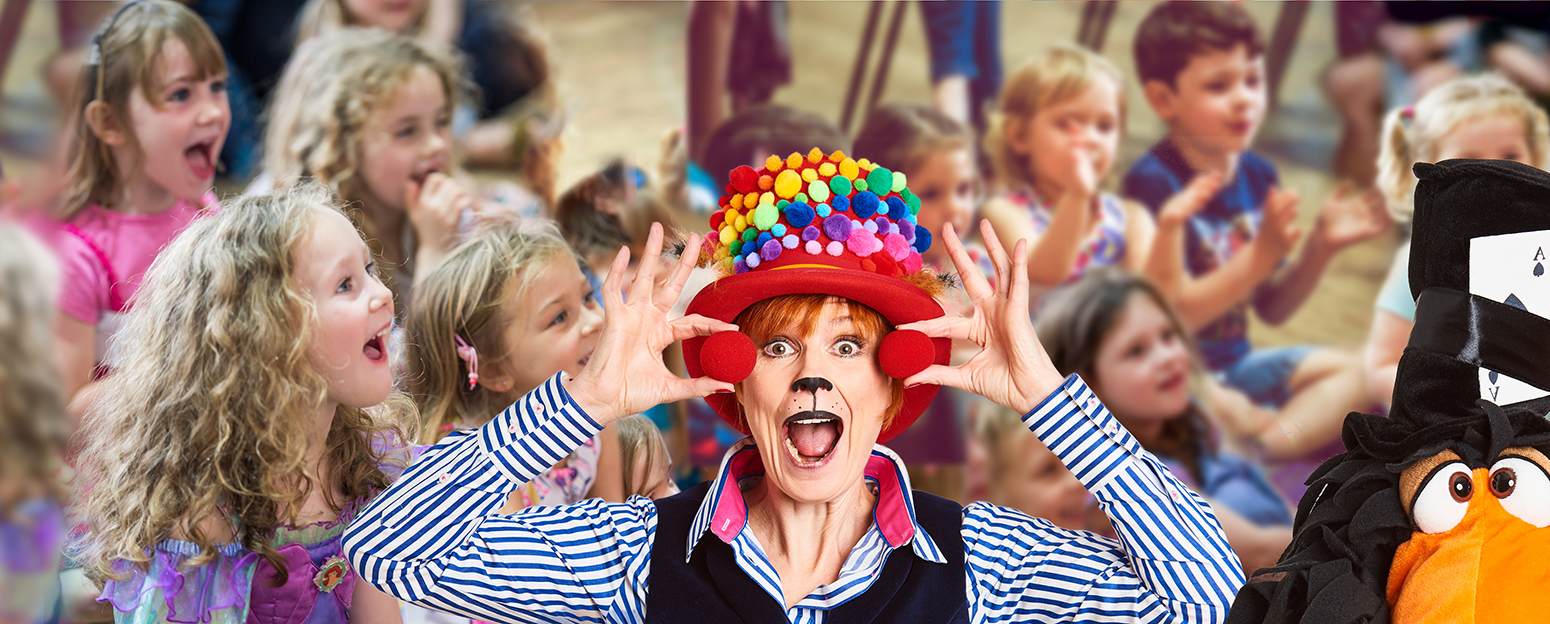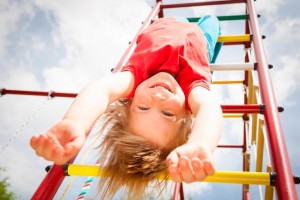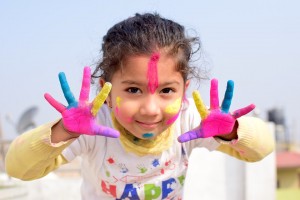Masters in children’s rights and childhood studies
These are general, second-cycle studies, combining research with action research, relating to Polish and European legal and socio-cultural regulations related to research, activities and protection of children's rights (Convention on the Rights of the Child, EU and Polish strategies for children, UNICEF monitoring the situation of children, initiatives of the Ombudsman for Children, etc.). Students receive pedagogical tutoring.
A graduate of interdisciplinary MA in Children’s Rights and Childhood Studies (MICRACS) a Master's Degree confirming completion of second-cycle studies in the field of Interdisciplinary Childhood and Children’s Rights Studies – with the leading discipline – pedagogy. Such qualifications will allow our alumni to act as a leader and defender of children's rights in various educational institutions and environments.
A graduate of the interdisciplinary MA in Children’s Rights and Childhood Studies (MICRACS) may also obtain employment in the media dealing with children's problems, in non-governmental organizations in local government as an expert, specialist, evaluator and creator of systemic solutions at any level of social policy: local government, commune, district, voivodeship, nationwide. They may occupy special positions related to research and activities for children's rights, may act as an advisor, social spokesperson, defender or educator of children's rights.
These are general, second-cycle studies, combining research with action research, relating to Polish and European legal and socio-cultural regulations related to research, activities and protection of children's rights (Convention on the Rights of the Child, EU and Polish strategies for children, UNICEF monitoring the situation of children, initiatives of the Ombudsman for Children, etc.). Students receive pedagogical tutoring.
The mission of Interdisciplinary studies on childhood and children's rights is to build and develop a significant centre of research and activities focused on the heritage of Janusz Korczak and Maria Grzegorzewska, as the Polish contribution to the protection of children's rights in the international arena. This centre brings together and will bring together a community of researchers and activists associated with the Polish and international Korczak movement and movements for children's rights.
The MA operates in cooperation with Children’s Rights European Academic Network (CREAN). APS has been a member of this network for 12 years. Childhood and child rights studies are an established and constantly developing European and international structure. In Europe, for many years, the Centre for Children's Rights Studies University of Geneva has been the patron and partner of these studies.Through the network of UNESCO Chairs, we cooperate with many European and non-European centres. The study programme is under the patronage of the UNESCO/Janusz Korczak Chair.
Interdisciplinary MA in Children’s Rights and Childhood Studies (MICRACS) complement the pedagogical offer of the Maria Grzegorzewska University. These are studies that fill a professional niche. The studies are individualized. Individualization concerns mainly optional classes, selected placement places, specific projects and practical research conducted as part of master's theses, as well as in the field of a foreign language and international contacts of the student.

Dla kogo studia na kierunku masters in children’s rights and childhood studies
Interdisciplinary MA in Children’s Rights and Childhood Studies (MICRACS) draws on the contemporary European and worldwide research on childhood and children's rights conducted by educators, psychologists, sociologists, social politicians and social workers, as well as lawyers and representatives of medical sciences.
Program kształcenia na kierunku masters in children’s rights and childhood studies
Graduate knows and understands to a greater extent selected facts, objects and phenomena concerning the child, its development, social, psychological, political, cultural and medical factors related to its well-being, methods and theories explaining the complex relationships between them.
Graduate knows and understands the assumptions of the Convention on the Rights of the Child and the practical effects of its impact and implementation. The scope of their knowledge comes from the leading discipline: pedagogy, supported by knowledge in the field of scientific disciplines: legal sciences, medical sciences, political science and administration, creating theoretical foundations for practical activities.
Has structured and theoretically underpinned knowledge covering key issues related to the child, childhood, upbringing, teaching, support and selected issues in the field of advanced detailed knowledge on multifaceted issues related to human rights, in particular children's rights.
Knows and understands the main development trends of scientific disciplines related to the interdisciplinary nature of studies relevant to the education program.
Graduate knows and understands the fundamental dilemmas of modern civilization related to childhood, upbringing, changes in the social positioning of children and the family, and research methods allowing for in-depth understanding of the individual situation and the child's living environment. Graduate knows and understands the economic, legal, political, social and other conditions of various types of activities related to childhood and children's rights, including knows and understands the principles of protection of industrial property and copyright. They know the basic principles of creating and developing various forms of entrepreneurship.
Przedmioty maturalne i zasady rekrutacji na kierunku masters in children’s rights and childhood studies
Check the admission rules on the University website.
Perspektywy pracy po kierunku masters in children’s rights and childhood studies
In line with the recommendation of the European Parliament and the Council of Europe, these studies educate people to a niche, and distinct, yet exclusive labour market.
A graduate of interdisciplinary MA in Children’s Rights and Childhood Studies (MICRACS) a Master's Degree confirming completion of second-cycle studies in the field of interdisciplinary MICRACS – with the leading discipline in the field of education. Such qualifications will allow our alumni to act as a leader and defender of children's rights in various educational institutions and environments.
Interdisciplinary MA in Children’s Rights and Childhood Studies (MICRACS) take into account recommendations and strategies developed for the needs of the European Parliament and the Council of the European Union, take a flexible, partially experimental form of education focused on educational projects and alternative solutions. This will enable the so-called key competences (necessary for the implementation of projects), which include: communication in English as a foreign language, learning skills, social and civic competences, initiative and entrepreneurship, cultural awareness and expression, and IT competences.
MICRACS are focused on new, important social and educational challenges related to children's rights. They are to respond to Poland's obligations resulting from the signing of the Convention on the Rights of the Child and to prepare staff for central and local government and non-governmental institutions dealing with the observance of children's rights (Office of the Ombudsman for Children, Human Rights Ombudsman, Ministry of Foreign Affairs, Ministry of Education, Warsaw City Hall, local government offices, mayor’s offices), as well as to the media and pedagogical social, cultural and educational institutions dealing with designing work with children, activities of various educational institutions and intervention in cases of violating children's rights. An important potential place of work for graduates of interdisciplinary studies on childhood and children's rights are non-governmental organizations (over 80 organizations and associations associated with the Office of the Ombudsman for Children).
Pursuant to Poland's obligations resulting from the signing of the Convention on the Rights of the Child - Interdisciplinary studies on childhood and the rights of the child prepare professional staff that will deal with: monitoring children's rights and implementing special programs and recommendations related to children's rights (right to: life, family and social support), health, education, non-violence.
A graduate of the interdisciplinary MA in Children’s Rights and Childhood Studies (MICRACS) may also obtain employment in the media dealing with children's problems, in non-governmental organizations in local government as an expert, specialist, evaluator and creator of systemic solutions at any level of social policy: local government, commune, district, voivodeship, nationwide. They may occupy special positions related to research and activities for children's rights, may act as an advisor, social spokesperson, defender or educator of children's rights.
Thanks to an extensive variety of practices, a graduate of MICRACS has the skills to work with and for the benefit of children, and also has the social capital of the Polish and international community of children's rights activists.
A graduate of interdisciplinary MA in Children’s Rights and Childhood Studies (MICRACS):
- Becomes an expert on child welfare, early intervention, child support systems, children's rights and the environmental dimension issues.
- Has pedagogical, psychological, sociological, political, legal and medical knowledge that allows the graduate to understand the process of child development and the upbringing of a child in various environments. The alumni know and understand the various faces of childhood, its individual social, cultural, economic and political conditions in today's world. Moreover, is prone to critical analysis of information sources and a deep analysis of academic texts, perfecting their own technique of academic writing. The alumni has knowledge of the research methodology, but most of all the legal and institutional framework of helping and supporting a child in multiple situations.
- Can look at the process of education from an individual and social perspective. Understands the child's individual effort as well as the socio-cultural contexts of upbringing and socialization.
- Is a reflective practitioner, can manage their own development, acquire theoretical and practical knowledge, reflectively evaluate themself and their actions, build and develop intellectual and social capital, respecting intellectual property.
- Is a caring guardian of a child, offering advice and assistance, while respecting the subjectivity and autonomy of the child, who can create challenges and situations prompting the child to engage in individual and collective educational activities.
- The graduate builds the professional biography on the basis of knowledge, skills and competences previously acquired at undergraduate studies, supported by various experiences of working with children and around their well-being and their rights, which is developed by taking part in research activities at the second-degree studies.
- The professionalism is based on universal values in the service of the child's welfare, respect for their dignity, freedom and childhood citizenship, combined with a compliant attitude towards the child, supporting their development and building a child-friendly social order directed at anti-discrimination and inclusive activities.
- Has a positive attitude towards oneself, towards the child, towards other people and towards the world. Becomes a constructive, creative person looking for new solutions, ready to initiate and implement changes.
- Builds professional identity in a local and global perspective, knowing understanding and developing Polish traditions, experiences and achievements in the field of children's rights, and at the same time is open to international processes, challenges and solutions implemented by various international environments and agendas.
Opinie o kierunku masters in children’s rights and childhood studies
Kierunki pokrewne do kierunku masters in children’s rights and childhood studies
Jakie uczelnie oferują kierunek masters in children’s rights and childhood studies
W których miastach można studiować kierunek masters in children’s rights and childhood studies
Komentarze (0)
Zobacz również

Pedagogika w Katowicach

Pedagogika w Krakowie

Pedagogika w Lublinie

Pedagogika w Opolu

Pedagogika w Radomiu

Pedagogika w Rzeszowie

Pedagogika w Zielonej Górze

Pedagogika w Białymstoku

Pedagogika w Bydgoszczy

Pedagogika w Gdańsku

Pedagogika w Gdyni

Pedagogika w Kielcach

Pedagogika w Koszalinie

Pedagogika w Olsztynie

Pedagogika w Poznaniu

Pedagogika w Szczecinie

Pedagogika w Toruniu

Pedagogika w Warszawie






























































































































































